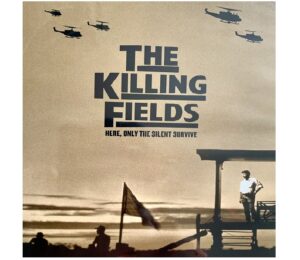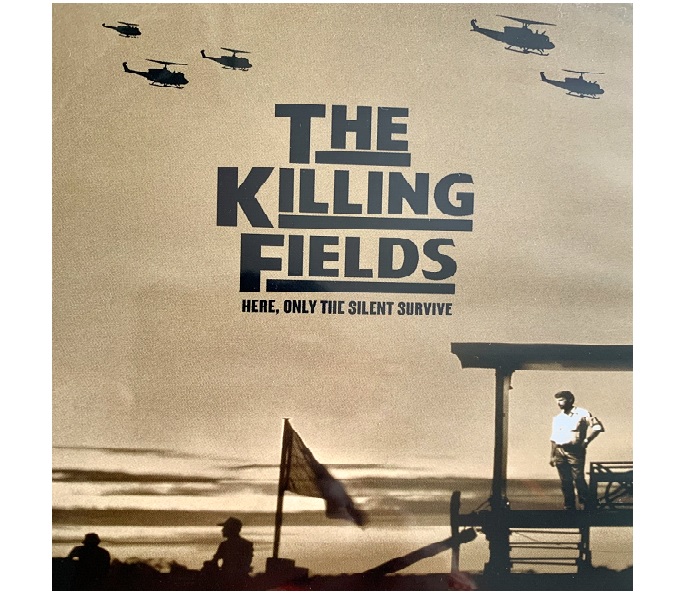The Big Wars in My Lifetime

I was just an idea when Japan invaded my old country, the Philippines. Or, maybe not. Only my parents can answer this but, they had joined their Maker a long time ago.
I was born after WW2. Was too young to remember the Korean War. My only exposure to it is when I watch MASH, a half hour tv show about American healthcare providers stationed in South Korea during the Korean War. When the Americans joined the Vietnam War, I was a teenager who had a summer job in a a city where there was a US naval base, checking slot machines at the recreation areas to see if they were working and reporting those that weren’t. At the time, the Philippines had US bases which American ships and planes used for servicing, refuelling and transporting soldiers for their R & R, otherwise known as rest and recreation, while they were stationed in Vietnam. Then, I was just too happy to have a summer job in a place where American soldiers spent their break from the war. I was already in Toronto when the Vietnam war ended in 1975. By then, I had come to realize the immensity of that war which took place just 1,464 kms from the Philippines. My first time watching “Killing Fields”, a documentary movie about Cambodia and how it was dragged into the war of neighbouring Vietnam, was heartbreaking. I’ve re-watched the movie a few times, the latest just two months ago, as the US troops prepared to leave Afghanistan, and the effect on me is still the same.
The withdrawal of the US troops from Vietnam and Cambodia in 1975 was chaotic. Those who helped Americans navigate these two Southeast Asian countries like interpreter Dith Pran in “Killing Fields”, and who were left behind, suffered indescribable lives before ending up in a refugee camp in Thailand. Pran was lucky he made his way to Thailand. Others were not. Fast forward 46 years later and I’m looking again at another withdrawal of US troops from a longer war, much more protracted than the Vietnam war. The US engaged Afghanistan into a war in response to the terrorist attack of September 11th, 2021, wherein over 3,000 people died in the the twin towers alone in Manhattan. Many of us remember what we were doing that day. I myself was booking my return flight to Toronto from Manila on that day.
It’s never easy withdrawing troops from a war. It’s always seen as signifying a defeat. Experts say that the US withdrawal from Afghanistan didn’t need to be chaotic, as reported by CBC’s Mark Gollum, on August 18, 2021. Major General David Fraser who commanded in 2006 about 2,000 coalition troops during Operation Medusa in Kandahar says, “So much of this is about a dialogue and about communicating a message to the Afghans and to the world that you are transitioning in an orderly fashion.”. Fred Kaplan of Slate presents a bigger picture of the decision to withdraw in his article dated September 29, 2021, “We Now Know Why Biden Was in a Hurry to Exit Afghanistan”. In this article, he looks back at President Obama’s first year in office when the generals wanted 40,000 troops and a shift to nation-building and the then VP Biden advised him to give just 10,000 troops to avoid being “boxed in” by the Generals. As the August 31st, 2021 deadline for the Afghanistan withdrawal approached, the generals broached the idea that perhaps 2,500 soldiers can stay, not as members of a “military mission” but as part of a “diplomatic mission”.
The Biden administration may have foreseen this as the Taliban regarding the 2,500 remaining soldiers as US soldiers who will continue to fight them, regardless of their designation, and Biden would then be faced with the choice of pulling them out hastily, perhaps losing more lives in the process, or escalating the war which has stretched on to 20 years and which the Americans has had enough of. Therefore, the decision to pull out totally was carried out. Reminiscent of the Vietnam War from which the US also withdrew, locals who helped the Americans fight the Taliban got left behind again like the interpreter who helped the current US President Biden who as a senator in 2008 escape Afghanistan. Afghan interpreter Aman Khalili, after a personal plea to Biden, managed to get to Doha, Qatar, with his family after escaping Afghanistan with the help of US military veterans and former Afghan soldiers, reports Dion Nissenbaum on October 11th, 2021, of Wall Street Journal.
Wars are messy, complicated, ugly, and costly. The dollar figures are high. Kimberly Amadeo of “the balance” reports on the cost of the Vietnam war based on the current dollar value – about $1 trillion. American deaths in this war was 50,441. BBC News of September 3, 2021 reports the expected dollar cost of the Afghanistan war, as referenced by President Biden, to be $2 trillion which includes the interest on debt incurred in financing the war and the expenses which go to the veterans’ care.
The human cost is high. Ellen Knickmayer of AP News in her August 17, 2021 article “Costs of Afghanistan war, in lives and dollars” enumerates the human cost as follows: American military killed in action through April 2021: 2,448, American contractors: 3,846, Afghan military and police: 66,000, coalition members except the US: 1,144, Afghan civilians: 47,245, Taliban and other opposition fighters: 51,191, aid workers: 444, and journalists: 72. These fatalities do not include those killed by a suicide bomber in the Kabul airport on August 27, 2021: 92, including 13 US servicemen.
Nobody wins in a war. It only results in an indescribable human loss of lives and sorrow, displacement and chaos. Refugees became boat people after the US withdrew from Vietnam. They headed to neighbouring countries like my old country, the Philippines, which took them in and housed them in an island where they waited to be processed for entry to the US. I’ve seen the effects of wars when I was a member of the Immigration and Refugee Board of Canada in the 90s. I remember sitting in the courtroom, listening to the refugee stories, often through an interpreter. Determining whether or not the claim was honest was an agonizing job for me but I tried my best give every refugee a day in court. No one ever wants to leave a country where the person was born and grew up in but then again, no one wants to continue living in that country when the enemy takes over.



